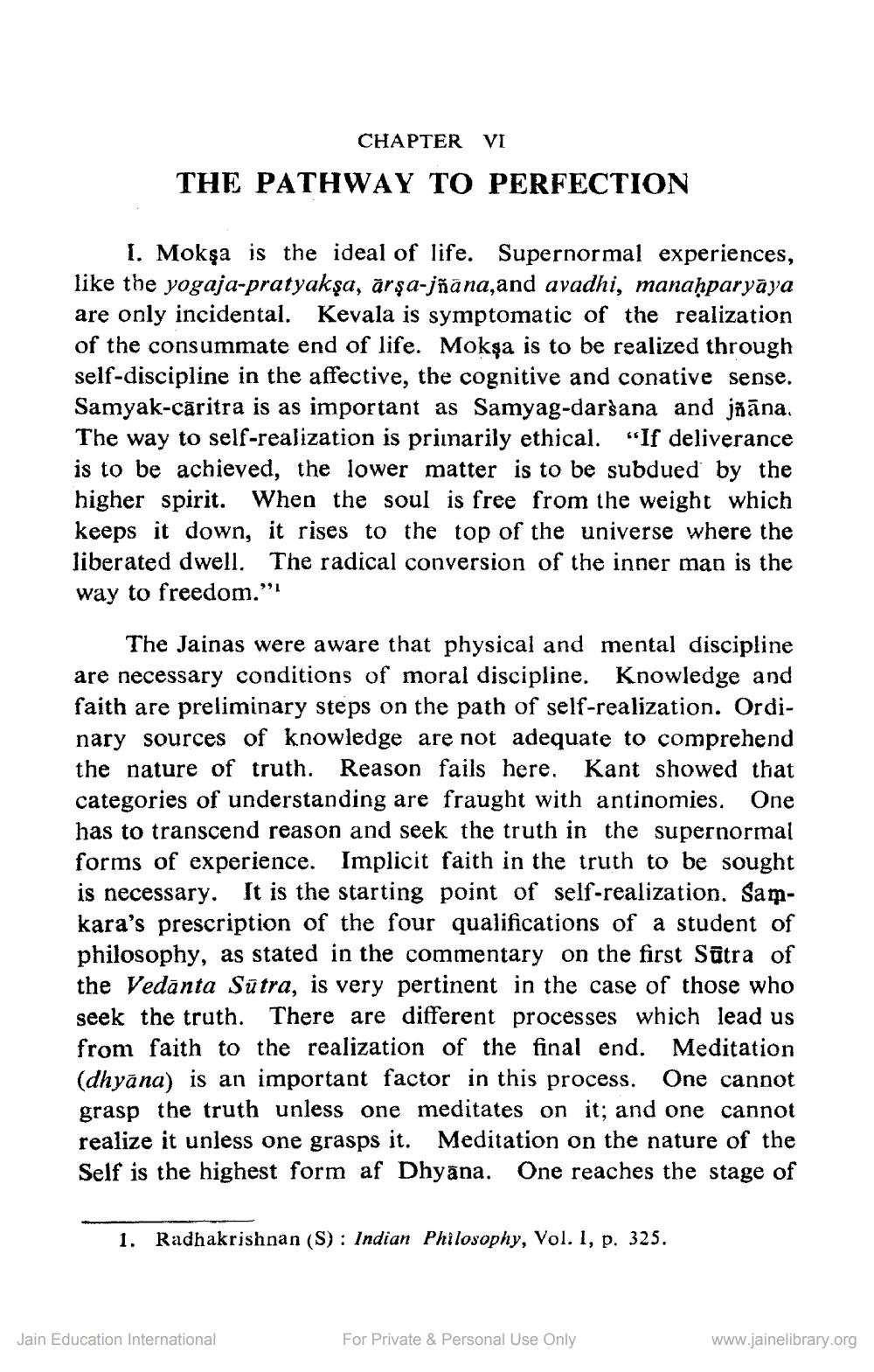________________
CHAPTER VI
THE PATHWAY TO PERFECTION
1. Mokşa is the ideal of life. Supernormal experiences, like the yogaja-pratyakşa, ārşa-jñana,and avadhi, manaḥparyāya are only incidental. Kevala is symptomatic of the realization of the consummate end of life. Mokşa is to be realized through self-discipline in the affective, the cognitive and conative sense. Samyak-cāritra is as important as Samyag-darsana and jñāna. The way to self-realization is primarily ethical. "If deliverance is to be achieved, the lower matter is to be subdued by the higher spirit. When the soul is free from the weight which keeps it down, it rises to the top of the universe where the liberated dwell. The radical conversion of the inner man is the way to freedom.”
The Jainas were aware that physical and mental discipline are necessary conditions of moral discipline. Knowledge and faith are preliminary steps on the path of self-realization. Ordinary sources of knowledge are not adequate to comprehend the nature of truth. Reason fails here. Kant showed that categories of understanding are fraught with antinomies. One has to transcend reason and seek the truth in the supernormal forms of experience. Implicit faith in the truth to be sought is necessary. It is the starting point of self-realization. Samkara's prescription of the four qualifications of a student of philosophy, as stated in the commentary on the first Sūtra of the Vedānta Sūtra, is very pertinent in the case of those who seek the truth. There are different processes which lead us from faith to the realization of the final end. Meditation (dhyāna) is an important factor in this process. One cannot grasp the truth unless one meditates on it; and one cannot realize it unless one grasps it. Meditation on the nature of the Self is the highest form af Dhyāna. One reaches the stage of
1. Radhakrishnan (S): Indian Philosophy, Vol. 1, p. 325.
Jain Education International
For Private & Personal Use Only
www.jainelibrary.org




